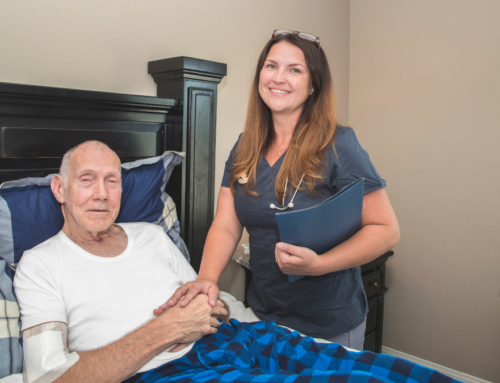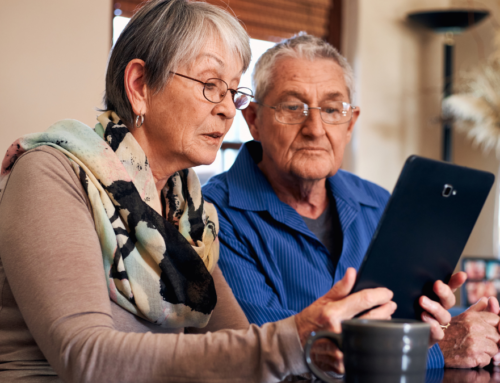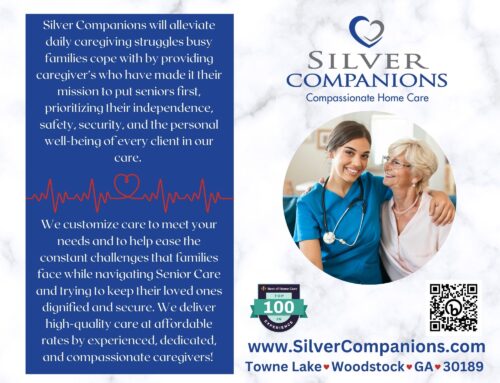
Improving Quality of Life for Seniors with Myasthenia Gravis
Practical Guide for Seniors Diagnosed with Myasthenia Gravis – Tools and tips to help seniors take charge of their health.
Life doesn’t always come with a roadmap, so if you’ve been recently diagnosed with Myasthenia Gravis as a senior, it can be hard to know where to start. This practical guide is here to fill in the gaps and help you create a plan for living your best life despite your condition.
Myasthenia Gravis explained
Myasthenia gravis (MG) is an autoimmune disorder where the immune system attacks receptors of muscle fibers, leading to weakness and fatigue. It affects men and women equally, with most cases diagnosed between the ages of 40-60 years old.
According to the Myasthenia Gravis Foundation of America, about 20 percent of MG cases are diagnosed in seniors and the incidence increases with age. Additionally, people over 65 are more likely to be affected by a more severe form of MG called ocular myasthenia gravis (OMG).
Understanding the Symptoms and Diagnosis of MG
MG is known to present itself with a variety of symptoms, ranging from mild to severe. Common symptoms include body weakness, drooping eyelids or double vision and slurred speech.
As the condition progresses, seniors may experience difficulty breathing when lying down or climbing stairs—a sign that MG is affecting their respiratory muscles. In some cases, seniors may experience sudden paralysis of certain muscles, such as those in the neck or face. Additionally, seniors with MG may find it hard to keep their balance when walking or standing.
Diagnosing MG can be tricky since its symptoms are often similar to other conditions. To confirm a diagnosis, physicians need to perform specific tests including electromyography (EMG) to measure electrical activity in the muscles and blood tests for acetylcholine receptor antibodies. If you suspect that you have MG, see your doctor right away.
Treatment Options for Managing MG Symptoms
Treatment for MG depends on the severity of symptoms. There are several medications, such as corticosteroids and immunosuppressive drugs, that can help reduce the muscle weakness associated with MG. Additionally, the drug pyridostigmine can help improve muscle strength, reduce fatigue and prevent muscle spasms.
In some cases, physical therapy or speech therapy may be recommended to assist with activities or strengthen weakened muscles and build strength and improve balance. Surgery may also be an option for those with more severe forms of MG.
Diet and Exercise Tips for Seniors with Myasthenia Gravis
Eating a balanced diet rich in protein, carbohydrates and vitamins can help seniors with MG manage their symptoms. Vitamin B-6 supplements may also be beneficial for those with MG. Additionally, regular exercise is important for maintaining muscle strength and improving balance.
A physical therapist or doctor can recommend specific exercises that are tailored to your individual needs. Swimming and walking are often recommended for seniors with MG since they don’t involve using a large amount of force or weight.
Dealing with Fatigue & Muscle Weakness
Managing fatigue and muscle weakness can be difficult for seniors with MG. To alleviate these symptoms, it is essential to prioritize sufficient rest and pace yourself during the day. You can try dividing tasks into smaller portions and taking frequent breaks in between.
It is also important to establish a routine and stick to it as much as possible while still allowing for flexibility. For example, plan your meals ahead of time and try not to overexert yourself when doing household chores. It would be helpful for seniors with MG to seek assistance from either family members or professional in-home care.
Setting Healthy Sleeping Patterns
Seniors with MG need a good night sleep to maintain their energy levels. It’s recommended to get around 8 hours of sleep every night and adhere to a routine bedtime schedule. To avoid sleeping difficulties, refrain from consuming caffeine, nicotine, and alcohol before bedtime. Moreover, practicing relaxation techniques like meditation or yoga can help enhance your sleep patterns.
Coping with Memory Loss & Cognitive Impairment
Myasthenia Gravis can cause memory loss and cognitive impairments such as difficulty concentrating. To help manage these symptoms, it is essential to keep your mind active by engaging in activities that challenge your brain. Here are some examples:
- Doing puzzles like crosswords or Sudoku
- Reading books
- Playing board games
- Doing creative activities like painting and drawing
These activities can also help increase your confidence levels and reduce feelings of isolation. Senior individuals with MG may benefit from socializing through group activities and maintaining close relationships with family members.
Utilize Assistive Devices and Home Modifications to Improve Quality of Life
In some cases, seniors with MG may need extra assistance to complete everyday tasks. Assistive devices such as walkers or wheelchairs can help them remain independent and improve safety around the home. Advanced technology, such as voice-activated controls, can make it easier for seniors to perform tasks.
Making modifications around the home can also help seniors with MG manage their symptoms. Installing ramps or adding grab rails to stairways and bathrooms, for example, can make it easier for them to navigate the home safely.
Finding Support Systems to Live Well
Managing a chronic illness like MG can be tough and lonely for seniors. Having support from family, friends, healthcare providers, and peers is important to cope with the condition effectively. Seniors can benefit from joining support groups or online communities where they can find comfort and share their experiences. They can also consider attending therapy sessions to enhance their well-being.
An in-home care provider can also be beneficial for seniors with MG. They can help manage day-to-day tasks and provide companionship, which can reduce feelings of loneliness and isolation. Professional in-home care providers understand the needs of individuals with MG and are familiar with assistive devices and home modifications that can improve their quality of life.
It is essential to take a comprehensive approach to managing MG and finding the right support systems for seniors can play an important role in enhancing their quality of life.
Coping with Myasthenia Gravis can be challenging and demands patience, comprehension, and empathy. By increasing awareness of the condition and exploring innovative approaches, we can significantly enhance the quality of life for elderly people affected by MG.
Are you looking for assistance in caring for your elderly family members who have MG?
Call Us today at (678) 494-8129 or email us at info@SilverCompanions.com and let’s discuss how we can help create a strong care plan tailored just for your loved one and your budget. With proper planning and assistance, seniors with MG can enjoy a fulfilling lifestyle that allows them to live out their golden years happily and comfortably.





